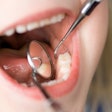Poor, minority, and special needs children are more likely to be affected by toothaches, according to a report in the November issue of Archives of Pediatrics & Adolescent Medicine (Vol. 164:11, pp. 1059-1063).
Charlotte Lewis, M.D., M.P.H., and James Stout, M.D., M.P.H., both of the University of Washington School of Medicine, Seattle, studied data from the 2007 National Survey of Children's Health to determine the prevalence of and risk factors for toothache in children. Data were collected from a population-based sample of the parents/guardians of 86,730 children between ages 1 and 17, from 50 states and the District of Columbia.
Based on the population represented by the sample, the authors found that approximately 10.7% of U.S. children had experienced a toothache in the previous six months and that toothache was most common in children between the ages of 6 and 12, with one in seven affected by toothache in the past six months.
"The most common cause of toothache is dental decay ... and the process of dental decay is one that optimally would be prevented or, at the very least, identified early and then arrested through provision of regular professional dental care," Drs. Lewis and Stout noted in a press release. "However, for some U.S. children, including those who are Medicaid-insured, access to preventive and restorative dental care is more difficult."
The authors also found that 58% of children who had a toothache also reported cavities within the past six months. Additionally, even when controlling for insurance and poverty status, black and multiracial children had significantly higher odds of having experienced a toothache than white children. Poor children had the highest prevalence of toothache, and Medicaid-insured children were more likely to be affected than uninsured or privately insured children. Children with special healthcare needs were found to have a significantly higher prevalence of toothache when compared to children without special needs, while functionally limited special needs children had had even higher rates of toothache.
"The prevalence of toothache, particularly among vulnerable groups who disproportionately experience it, serves to reinforce the importance of physician involvement in oral health and of efforts to better evaluate and improve our nation's oral health and dental care system," the authors concluded. "Optimally, our nation's healthcare system would include equitable and universal dental care access so that all Americans could obtain preventive oral healthcare as well as timely diagnosis and treatment of dental disease."
Copyright © 2010 DrBicuspid.com



















